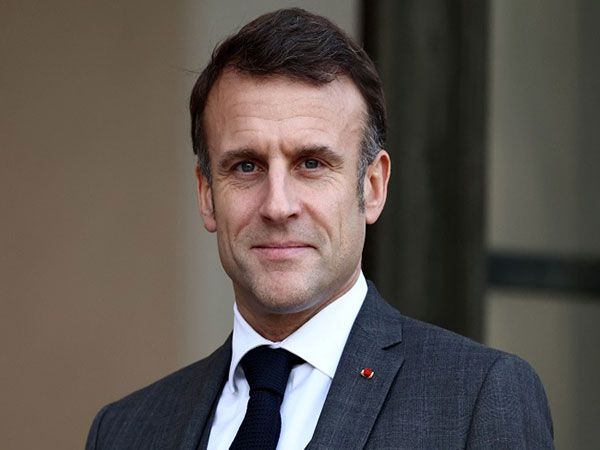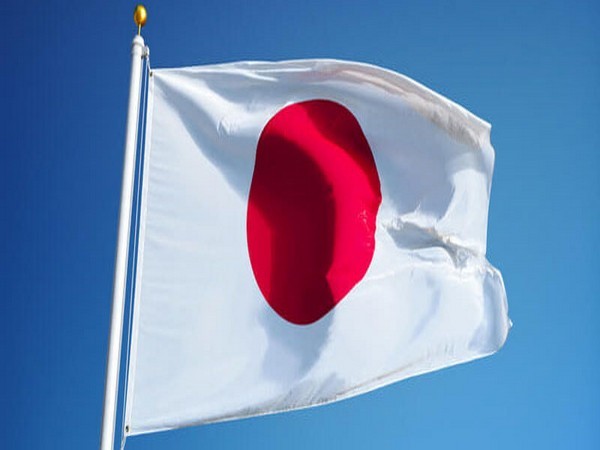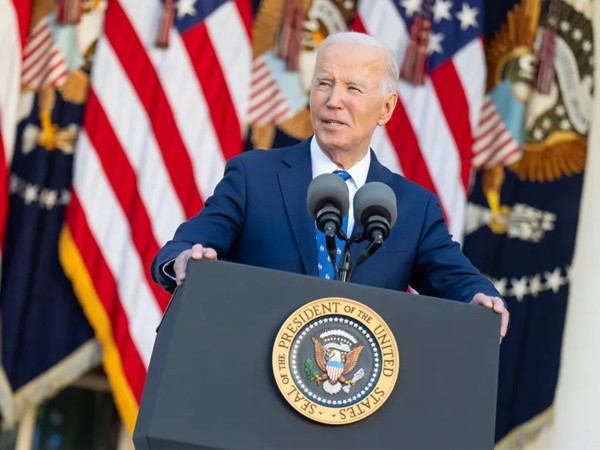France election: Voting underway as far right bids for power
Jul 08, 2024
Paris [France], July 8: Voting in the second round of the French parliamentary election opened on Sunday with the far-right looking to making major gains.
The polling booths opened at 8 am (0600 GMT) on Sunday and will close at 6 pm in towns and small cities and 8 pm (1800 GMT) in larger cities.
Voting has already started in some overseas territories. The decisive runoff for parliamentary elections will see 49.3 million eligible people cast their ballot.
The focus of this election will be if Marine Le Pen's far-right nationalists of the anti-immigration National Rally (RN) can secure an absolute majority in the National Assembly.
Le Pen's RN came out on top in the first round of the polls on June 30.
Recent polls suggest Le Pen may fall short of an absolute majority, while still being the largest party in parliament.
Voter turnout stood at 26.63% by midday in France's legislative election, according to the French Interior Ministry.
The figure was substantially higher than in 2022, when 18.99% of those eligible to vote had done so by 12 p.m. local time (1000 UTC).
According to French Daily Le Monde, voter participation also reached an "unprecedented" high in the first round, which largely benefited President Emmanuel Macron's centrist Renaissance party and far-right National Rally (RN).
The RN is expected to take first place in Sunday's vote but is likely to fall short of an absolute majority in parliament.
Election outcome could have financial ripple effects
French President Emmanuel Macron dissolved France's lower house of parliament on June 9 after his centrist coalition was defeated by the far-right National Rally in EU parliamentary elections.
Macron's announcement caused financial turmoil, with France's stock market going down and interest rates rising.
In the first round of France's legislative election, the far-right National Rally (RN) came first and the left-wing New Popular Front (NFP) came second.
DW took a look at the potential economic instability resulting out of Sunday's election and the economic policies proposed by Macron, the RN and the NFP.
What happened in the first round?
In the first round of the French parliamentary election, Marine Le Pen's National Rally (RN) achieved historic gains, raising the possibility of France's first far-right government since World War II.
The RN and its allies garnered some 33% of the vote, the leftist New Popular Front got 28%, and the centrist Ensemble bloc led by President Emmanuel Macron secured some 20%.
While the RN is projected to become the dominant force in the National Assembly, it is expected to fall short of the 289 seats out of 577 needed for a majority.
Le Pen urged voters to give her RN an "absolute majority" in parliament "for (RN's) Jordan Bardella to be appointed prime minister by Emmanuel Macron."
"Nothing has been won yet and the second round will be decisive, to avoid the country falling into the hands of the [NPF] alliance, from an extreme left with a tendency to violence," Le Pen said earlier, using the alliance's former name.
This comes in the light of centrist and leftist parties forming an anti-RN coalition with over 200 candidates withdrawing to create a "republican front" against the far-right.
Hence, the RN's chances of securing an absolute majority in the 577-seat National Assembly seem uncertain.
If the RN falls short, it could still double its 2022 seat count and dominate a hung parliament, potentially causing policy paralysis until Macron's presidency ends in 2027.
This scenario could set the stage for Le Pen's expected fourth presidential bid.
Source: Times of Oman








